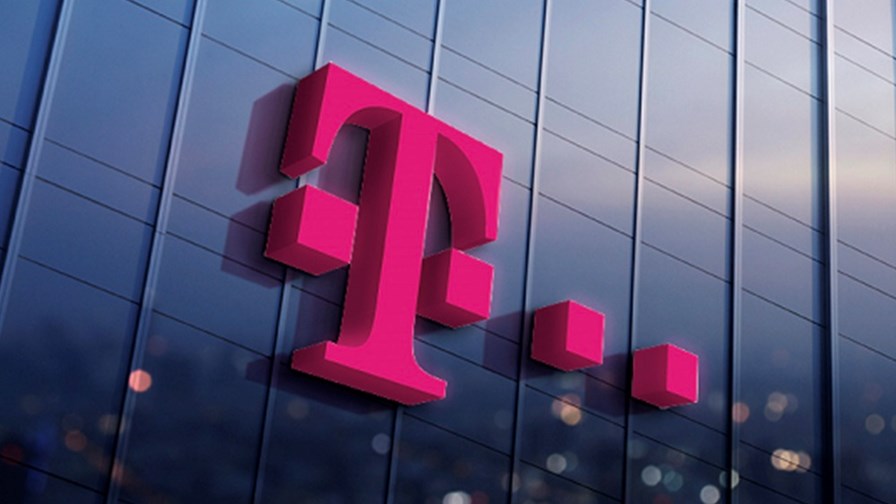
- T-Mobile secures subscriber growth
- Telefónica celebrates first half results despite lower-than-expected net profit
- German operators get knuckles rapped over GDPR breach
T-Mobile’s strategy of going after subscriber growth with value offers, just as its customers got price conscious due to the rising cost of living, has paid off. The number-three US telco attracted more new customers than either of its two rivals and, as a result, its shares rose by more than 4% yesterday. The company had expected to add between 6 million and 6.3 million net monthly bill-paying subscribers in 2022, up from an expected 5.3 million to 5.8 million. Reuters says T-Mobile shares were close to their one-year high of $140.2 – read the full results here.
It’s smiles all round at Telefónica as the Spanish telco delivered what it described as a solid set of results for the first half of this financial year, topped off by some growth acceleration in the second quarter. Analysts and the market were less impressed though. While core earnings beat analysts’ expectations, the overall result was dragged back by a net profit that came in just below forecast. Telefónica said that it had reduced the hit from inflation by hedging energy costs, pushing up prices, reducing wage increases and cutting headcount. It also benefited from a weaker euro during the quarter. Read more.
A clutch of German operators have fallen foul of Europe’s General Data Protection Regulations (GDPR) with North Rhine-Westphalia’s regional consumer advice bureau taking action against Deutsche Telekom, Telefónica (O2) and Vodafone. The operators have allegedly been passing on customer data to credit agencies, but had been following their own guidelines by filtering out any sensitive or negative mentions. But it turns out that even the so-called “positive data” subsequently forwarded to the agencies represented a breach, according to the consumer advice bureau since, in certain circumstances, it could be used to make negative decisions on an individual’s creditworthiness. The cases have been forwarded to the relevant district courts.
On Wednesday, the US Senate passed a bill to subsidise the US semiconductor industry to the tune of around $52bn, plus a production and investment tax credit for chip plants estimated to be worth a further $24bn. The legislation will also authorise $170bn over five years to boost US scientific research to better compete with China. The US industry is still suffering from supply chain issues, as are most other countries, but according to Reuters, most of the funding is aimed at factories that will take two or three years to build, while car-maker General Motors says it has more than 90,000 unfinished vehicles sitting in vast car parks waiting for chips and other parts.
Working from home may have saved the day for many companies throughout the pandemic – but it also proved to be a boon for the ransomware gangs, with attacks doubling in 2021 compared to 2020 figures, according to Security Magazine. Google claims its ChromeOS Flex might become part of the solution here. It’s just released versions of the operating system for both Macs and Windows machines, essentially turning them into Chromebooks, thereby offering corporates a secure OS that can be quickly deployed across a large number of remote employee devices via Google’s Admin console, thus alleviating the insecure home working problem, it has claimed. This could be particularly useful should another Covid-like situation arise. Since Google made Flex available in February, it claims to have certified over 400 Flex-compatible devices. Readers might remember the kerfuffle in the early Chrome OS days, when Microsoft moved to stem the rising Chromebook tide with an attack ad campaign, claiming that Google’s offerings simply weren’t up to the job of being PC replacements. Imagine the quiet satisfaction being felt at Google HQ now that the tables are apparently turning. So why might this move have a big security impact for networked applications? Google claims that Chrome OS Flex’s big advantage is its ability to manage devices through the admin console, not only controlling updates for multiple devices but providing the ability to remotely wipe or disable compromised devices should the need arise. But the big Flex advantage may be its non-support of native applications, which means that no sneaky malware or ransomware can find its way onto the user devices, thus neutralising the worst security threat.
Still with Google… The cloud giant has announced that it’s having another pop at augmented reality (AR). But this time it’s going to take things slow and deliberate, unlike the unfortunate and badly planned Google Glass fiasco of 2012, when anyone unwary enough to be wearing the augmented reality specs risked being called out as a “Glasshole”. Now, older, wiser and aware that Facebook, Microsoft and Apple are jostling for position with their Meta strategies, Google is planning another AR push with what its relevant blog post describes as real-world prototypes, which will have the usual microphones, cameras and lens displays, but will be steered and informed by a strong focus on privacy... and to make things perfectly clear, this time around there’s to be no photography or videography… none! Got that?
The French National Assembly has voted to abolish the French equivalent of the UK broadcasting licence fee, which funds French public broadcasting. A levy on VAT is to replace France’s audio-visual licence, which currently generates about €3.1bn for public service broadcasting and is topped up with another €653.5m from the government.
Email Newsletters
Sign up to receive TelecomTV's top news and videos, plus exclusive subscriber-only content direct to your inbox.




